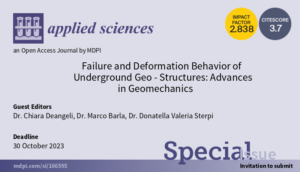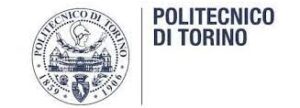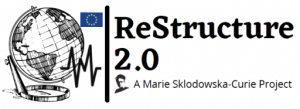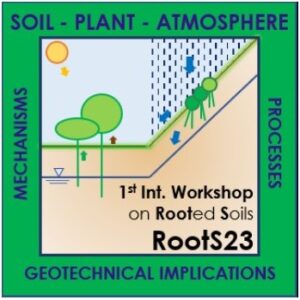8ICEGE – 8th International Conference on Earthquake Geotechnical Engineering – Osaka, May 7-10, 2024
The 8th International Conference on Earthquake Geotechnical Engineering (8ICEGE) will be held in the Osaka International Convention Center in Osaka (Japan) between the 7th and 10th May 2024, hosted by the Japanese Geotechnical Society and TC203 (Earthquake Geotechnical Engineering and Associated Problems). The abstract submission deadline has been re-extended to May 10th, 2023. More info on the Conference website.
TC304/TC309 STUDENT CONTEST FOR GEO-RISK 2023
TC304 and TC309 of ISSMGE announce the Student Contest that will be held at Geo-Risk 2023. The contest will last 3 months (deadline June 21, 2023). Geotechnical engineers (students and practitioners) are invited to take part in the competition. Participants are encouraged to share their methodologies, experience, and relevant materials in the Discussion forums. Kaggle is used as the platform for hosting this competition. The results of the contest will be presented at the conference. The Student Contest problem statement is attached here. People who are interested in participating in this activity are required to fill in the participation form and send it back to Prof. Hui Wang (hwang12@udayton.edu).
FAILURE AND DEFORMATION BEHAVIOR OF UNDERGROUND GEO-STRUCTURES: ADVANCES IN GEOMECHANICS. Special Issue on Applied Sciences
Failure and Deformation Behavior of Underground Geo-structures: Advances in Geomechanics
Special Issue on Applied Sciences, MDPI
Guest Editors: C.Deangeli, M.Barla, D.Sterpi
This Special Issue aims at constructing a channel for sharing knowledge in recent advances in Geomechanics to mitigate adverse events and to address challenges and potential solutions for a sustainable and resilient construction of underground geo-structures. More info on this flyer.
2nd INTERNATIONAL WORKSHOP ON COMPLEX FORMATIONS – Torino 9 maggio 2023
Il 9 maggio 2023 a Tornino si svolgerà il 2nd International Workshop on Complex Formations. L’evento si terrà presso il Politecnico di Torino (Energy Center Conference Room – Via P. Borsellino 38 int.16) nell’intera giornata (ore 8:30 – 16:30) ma sarà accessibile anche online. Scadenza per la early bird registration 5 Aprile 2023. Maggiori informazioni sull’evento e sulle modalità di partecipazione in questo flyer.
Assistant/Associate Professor of Soil Mechanics and Geotechnical Engineering @ University of Cambridge
Applications are invited for a University Assistant/Associate Professor in Soil Mechanics/Geotechnical Engineering in the Geotechnical and Geo-Environmental Group of the Department of Engineering of the University of Cambridge. A short description of the post can be found here. Informal enquiries regarding the post may be made to Professor Gopal Madabhushi (mspg1@cam.ac.uk).
ReStructure 2.0 “NON-LINEAR METHODS TO ACCOUNT FOR SOIL-STRUCTURE INTERACTION IN THE SEISMIC DESIGN OF BRIDGES” – Luigi Callisto, 20 marzo 2023
Lunedì 20 marzo 2023 (ore 14:00) si svolgerà il prossimo evento organizzato nell’ambito del progetto ReStructure 2.0 (Marie Sklodowska-Curie Actions – Reintegration Panel). Lo speaker sarà il Prof. Luigi Callisto dell’Università di Roma “La Sapienza”, con la presentazione dal titolo “NON-LINEAR METHODS TO ACCOUNT FOR SOIL-STRUCTURE INTERACTION IN THE SEISMIC DESIGN OF BRIDGES“. L’evento sarà in presenza presso l’Università della Calabria (Sala Stampa – Aula Magna – Convention Center), ma sarà possibile connettersi via Teams. Maggiori informazioni in questo flyer e in questa pagina-web. Link utili: modulo d’iscrizione.
Recent advances in input motion modelling for the design of earthquake-resistant systems – MS@EMI 2023 – Palermo, 27-30 august 2023
A mini-symposium on “Recent advances in input motion modelling for the design of earthquake-resistant systems” is organized in the framework of the Engineering Mechanics Institute International Conference (EMI 2023), which will be held in Palermo between the 27th and the 30 August 2023.The symposium will focus on new developments and research issues related to seismic hazard analysis, ground motion simulation and scaling techniques, and the use of artificial intelligence and machine learning models to solve earthquake engineering problems. More info on this web-page. Abstract submission deadline March 25, 2023.
8ICEGE – 8th International Conference on Earthquake Geotechnical Engineering – Osaka, May 7-10, 2024
The 8th International Conference on Earthquake Geotechnical Engineering (8ICEGE) will be held in the Osaka International Convention Center in Osaka (Japan) between the 7th and 10th May 2024, hosted by the Japanese Geotechnical Society and TC203 (Earthquake Geotechnical Engineering and Associated Problems). The abstract submission deadline is extended to April 10th, 2023. More info on the Conference website.
RootS23 – SOIL-PLANT-ATMOSPHERE INTERACTION: mechanisms, processes and geotechnical engineering implications – Perugia 20-21 aprile 2023
Dear Colleagues,
for a fruitful and pleasant participation to the Workshop and in order to organize at best your coming to Perugia, we kindly invite you to fill this Google form before Saturday 18th March.
We thank you very much and we hope to see many of you in Perugia,
Manuela Cecconi, Federica Cotecchia, Vincenzo Pane, Vito Tagarelli
More info on the Workshop on this web-page.
18th WORLD CONFERENCE ON EARTHQUAKE ENGINEERING (WCEE2024), Milano 30 giugno-5 luglio 2024
Dal 30 Giugno al 5 Luglio 2024, a Milano, si svolgerà la 18th World Conference on Earthquake Engineering (WCEE2024). Sono aperte le sottomissioni per le proposte di sessioni tecniche. Maggiori informazioni sull’evento in questo sito.






